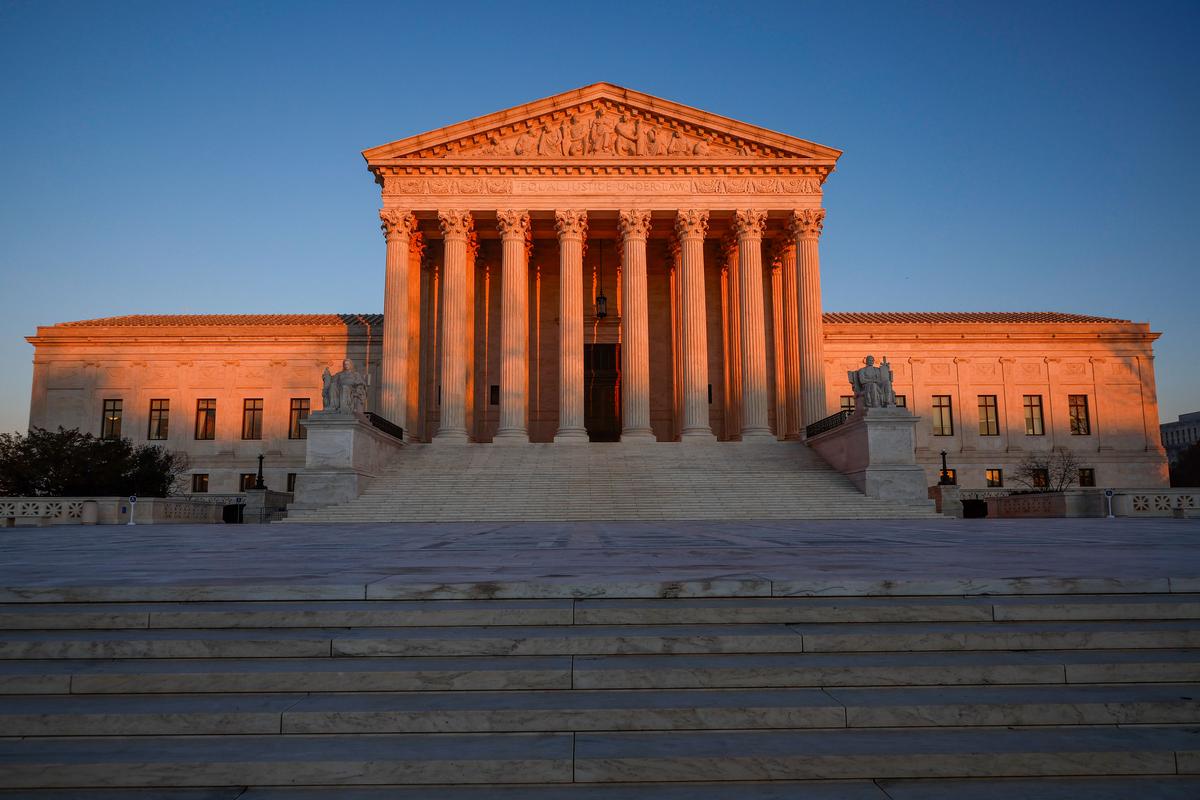
‘March 4 was already an aggressive start date in the first place when that date was originally announced.’
By Petr Svab
The Supreme Court’s declining to quickly hear a key aspect of former President Donald Trump’s criminal case makes it all but impossible for the upcoming trial in Washington, D.C., to launch on schedule, several experts have said. Some say the trial may not happen until after the 2024 election.
Special counsel Jack Smith, who handles the Trump D.C. case, asked the land’s highest court to decide on an expedited basis whether the former president’s alleged actions are covered by presidential immunity.
On Dec. 22, the court declined to hear the case, at least for the time being as it’s pending before the federal Court of Appeals for the D.C. Circuit.
On Aug. 1, Mr. Smith charged President Trump with four counts of obstruction or conspiracy for his efforts to challenge the results of the 2020 election.
President Trump’s lawyers argued that his actions fell within the bounds of presidential duties and he was thus covered by presidential immunity—an unsettled legal theory.
District Judge Tanya Chutkan rejected the argument and President Trump appealed to the D.C. Circuit.
The timing of the trial bears political implications as President Trump may have an interest in delaying it beyond the election, while his opponents may prefer to see him sentenced during election season.
Mr. Smith originally asked for the trial to start with jury selection on Dec. 11, while lawyers for President Trump wanted April 2026. Judge Chutkan picked March 4, a day before the Super Tuesday slew of primary elections during which President Trump competes for the GOP nomination.
On Dec. 12, Judge Chutkan put the case on hold while the immunity appeal is pending. That already made it highly unlikely the trial could start on schedule. But there was still a chance, depending on how the Supreme Court handled Mr. Smith’s request, Jonathan Turley, a professor at George Washington University Law School and an expert on constitutional issues, has argued.
Now that the Supreme Court has made its call, “the March 4 deadline is all but dead,” commented Horace Cooper, a senior fellow with the National Center for Public Policy Research, who formerly taught constitutional law at George Mason University.
“Today we are already at the point where many of the other procedural requirements for the March 4 trial should be happening. But due to the appeal those are frozen in place,” he told The Epoch Times via email.
“There’s just not enough time to meet those targets and start on the 4th. March 4 was already an aggressive start date in the first place when that date was originally announced.”
Even if the D.C. Circuit rushed the case through as fast as it could, it would first be a three-judge panel and President Trump would then have 45 days to ask for the full circuit the hear the case. If that is declined, he will have another 90 days to appeal to the Supreme Court, explained criminal defense lawyer and former federal prosecutor William Shipley in an X post.
If the D.C. Circuit tries to cut the 90-day limit short, President Trump can ask the Supreme Court to pause the circuit ruling before he files his appeal, Mr. Shipley said.
In addition, the more the circuit rushes its decision, the more likely the Supreme Court will pick it up, Mr. Cooper said.
“If the Appeals Court takes 4–6 months to issue its ruling it will be given greater deference by the Supreme Court. On the other hand, if the Appeals Court acts in haste and doesn’t rule very narrowly, they’ll force the Supreme Court’s hand.”
The Supreme Court could let the circuit ruling stand, but it would be “surprising” and “perhaps even an abdication of responsibility,” commented Joyce Vance, an MSNBC contributor and former U.S. Attorney under President Barack Obama.
“This is a major question of first impression involving presidential immunity,” she said in an X post.
It’s possible the case will even be pushed behind another trial President Trump is facing in Florida that’s scheduled for May, Mr. Shipley opined.
“It will likely be in the fall of 2024 before the immunity case will be on the SCOTUS docket, not to be decided until after the election,” he said.
On the other hand, the Florida case may be itself delayed until after the election, commented another career attorney who runs X account “KingMakerFT.”
Even in that case, “I still don’t see SCOTUS reviewing the immunity issue in time for a trial before the election,” he said.
He previously asked The Epoch Times not to have his real name revealed.
Yet another lawyer, who runs the X account “Techno_Fog,” reached similar conclusion.
“There won’t be a trial in DC before the 2024 election,” he said.
“No mistake—this is a big loss for the Special Counsel.”
He also previously asked The Epoch Times not to have his real name revealed.
And there’s another wild card in play: The Supreme Court recently agreed to pick up a case of a defendant charged for participation in the protest and riot at the U.S Capitol on Jan 6, 2021. The case deals with the scope of two charges used by Mr. Smith against President Trump—obstruction of an official proceeding and conspiracy to do so. Some experts predicted the Supreme Court may interpret the law more narrowly, rendering it inapplicable to the Jan. 6 defendants. That could make it inapplicable to President Trump as well.
